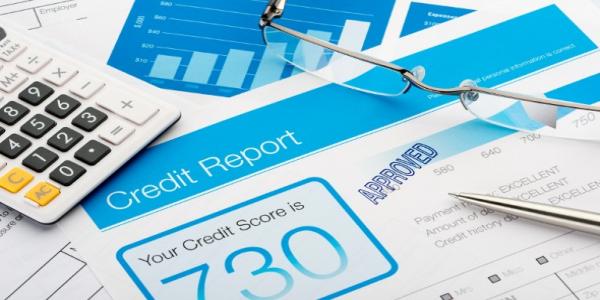
New Delhi: One of the most important prerequisites for taking on any kind of loan, is your credit score. Your credit score lets a lender know your credit history and repayment record. If you have a credit card or have taken a loan before and have paid the credit card bill or EMIs on times, your credit score will be high and this will make your creditworthy customer.
Whether it is a home loan, a vehicle loan, a personal loan or any other kind of loan, lenders look at the credit score, also called CIBIL score, to determine a borrower’s creditworthiness.
What is credit score?
It is basically a document containing information about the borrower’s credit behaviour. Banks use potential loan borrowers’ credit scores to check whether or not they have been repaying their loans, credit card bills etc. on time.
Importance of CIBIL score:
Through the CIBIL score, lenders can check if a borrower has defaulted on any loan, credit card bill payments, missed paying any EMI and even get an idea about one’s financial conditions. Note that if your credit scores are below 750, most lenders reject loan applications. This is why it is imperative to have good credit scores.
Here are 6 ways your CIBIL score can be improved:
1. Repay your debts on time: Being indebted is a financial as well as a mental burden. Whether it is your credit card bills or your loan EMIs, make sure you repay your debts in time without missing any deadline. Missing out on repaying any outstanding debt can impact your credit score significantly.
In order to ensure that your credit score is high, you need to be extremely careful when it comes to paying loan EMIs because failing to do so not only attracts penalties but also affects your credit scores negatively. One easy way to ensure that you pay your EMIs and credit card bill on time is to wither set reminders so that you don’t forget the loan repayment dates or set-up automatic payments so that the loan amount is directly debited from your savings account every month.
2. Avoid taking multiple loans: Taking multiple loans and carrying multiple credit cards is most often a recipe for financial disaster. It can land you in a serious debt trap and lower your credit score significantly. A great way to improve the CIBIL score is to ensure you do not take on multiple loans at the same time.
Before you borrow a loan, ensure that you’ve paid off your existing loan. If you already have a credit card, try to not get another one as it makes you lose track of your spending and repayment can get extremely difficult if you end up spending more than you earn. Another reason to not get multiple loans is that it shows your lender that you may not have sufficient funds to repay all of them.
However, if you have only one loan to repay, the lender can feel confident in giving you the loan and your credit scores will also remain unaffected.
3. Healthy mix of credit: Often, people take on a variety of loans to fund the various life necessities. Education loan, car loan and home loan. However, when you take the loan, it is better to ensure that there is a healthy mix of secured and unsecured loans. For those who are not aware, while home loan and car loan are secured loans, your credit card debt or personal loans are unsecured loans. In order to ensure that your financial life is good and your CIBIL score is high, it is advised to maintain a balance between secured and unsecured credit as access of one can affect your credit rating.
4. Don’t exhaust your entire credit limit: When you have multiple credit cards or one credit card with a high credit limit, it is easy to lose track of spending. Most often people exhaust their credit limit and later realize that they do not have enough to repay all that at once. So, another important point when we talk about improving credit score is credit limit utilization.
If your credit score is low, one of the quickest and the easiest ways to improve it is by not utilizing your credit card to the extreme limit. Try to spend only 30% of the credit limit provided on your card. For example, if you have a credit limit of Rs 2 lakh per month, you should try to restrict your monthly credit spends to only Rs 60,000 or less. When you exceed the 30% limit, your potential lender may get the idea that your spending habits are not good and this can also reduce your credit scores.
5. Increase the credit limit: If you have good repayment history and have a clean credit record, your bank can increase the credit limit on your credit card. If you are not an impulsive spender and are wise about your spending decisions, it is better not to turn down this offer. Increasing the credit limit doesn’t necessarily mean that you are going to increase your spending. The idea is to have a higher credit limit but limiting your credit utilisation, and thereby improving your credit score.
6. Error-free credit report: Most believe that their credit report is free of errors. However, there may be several unknown errors which might be impacting your credit score negatively. For example, you may have paid off your personal loan in full, but it might be showing as unpaid owing to administrative errors. It is therefore important to check your credit score and ensure it is error-free before you apply for a loan so that your loan request is not rejected, thus further impacting your credit scores.
Source:- timesnownews
